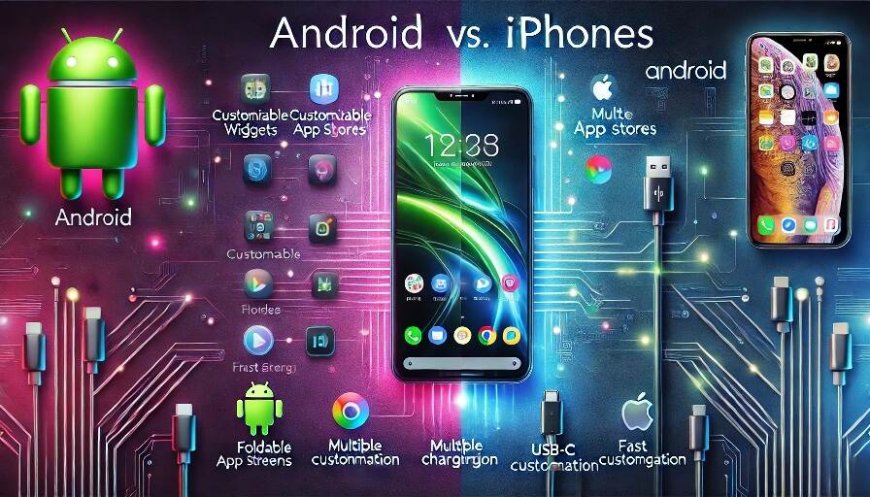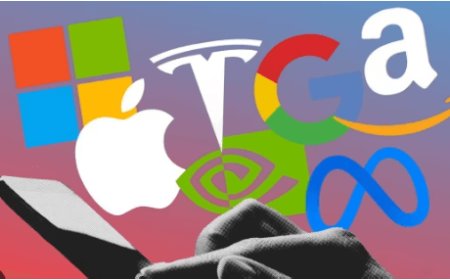Why Android Phones Are Better Than iPhones: A Comprehensive Analysis
Why Android Phones Are Better Than iPhones: A Comprehensive Analysis

Why Android Phones Are Better Than iPhones: A Comprehensive Analysis
The debate between Android and iPhone enthusiasts is as old as modern smartphones themselves. While Apple’s iPhone is often praised for its premium design and seamless ecosystem, Android phones offer several advantages that make them a compelling choice for many users. Here’s a breakdown of why Android phones may be the better option for you.
1. Greater Variety of Choices
Android phones come in all shapes, sizes, and price points, thanks to a wide range of manufacturers such as Samsung, Google, OnePlus, Xiaomi, and others. This diversity allows users to pick a phone that perfectly suits their budget and needs, whether it’s a budget-friendly model or a high-end flagship.
2. More Customization Options
Android is synonymous with customization. Unlike iPhones, where users are limited to Apple's interface, Android allows users to personalize their experience with widgets, themes, and launchers. You can tweak almost every aspect of your device, from the home screen layout to system-wide settings, giving you a phone that truly feels like yours.
3. Variety in Hardware Features
Android manufacturers frequently push the envelope with innovative hardware features. These include:
- Folding Screens: Devices like the Samsung Galaxy Z Fold series offer foldable displays, providing a unique mix of phone and tablet functionality.
- High-Resolution Cameras: Many Android phones, such as the Google Pixel or Samsung Galaxy Ultra series, lead the market in photography with advanced zoom features and AI enhancements.
- Headphone Jack and Expandable Storage: While iPhones have eliminated these options, many Android phones still offer them, catering to users who value flexibility.
4. Better Value for Money
Android phones provide excellent value across all price ranges. Mid-range and budget models often come with impressive features that rival premium devices, whereas iPhones are typically priced at a premium regardless of the model. Additionally, Android flagships often offer more features at a similar or lower price than the latest iPhones.
5. Choice of App Stores and Ecosystem
Unlike Apple’s tightly controlled App Store, Android gives users the freedom to download apps from multiple sources, including third-party app stores. This openness also extends to the ecosystem, where Android devices easily connect with a wide range of accessories, from smartwatches to headphones, without being locked into a single brand.
6. Superior Battery Life and Charging Options
Android phones often boast larger batteries and more advanced charging options. Features such as:
- Fast Charging: Many Android phones support rapid charging at speeds far beyond what iPhones offer.
- Reverse Wireless Charging: High-end Android devices can charge other gadgets, such as wireless earbuds, using their own battery.
This ensures that your phone can keep up with your busy lifestyle.
7. Advanced Technology First
Android phones are often the first to introduce groundbreaking technology. Features like in-display fingerprint sensors, 120Hz refresh rates, and 5G capabilities debuted on Android devices before becoming mainstream. This innovation keeps Android users at the forefront of technology.
8. USB-C Charging
Android phones have adopted USB-C, a universal standard for charging and data transfer. In contrast, iPhones still rely on the proprietary Lightning cable, which can be inconvenient and less versatile.
9. Enhanced Multitasking
Android devices offer superior multitasking capabilities. Features like split-screen mode, floating windows, and app pinning make it easier to use multiple apps simultaneously, enhancing productivity.
10. No Walled Garden
The "walled garden" approach of Apple often restricts user freedom, forcing reliance on proprietary services like iCloud or iMessage. Android offers greater flexibility, allowing seamless integration with Google services, third-party apps, and devices from various brands.
Conclusion
While iPhones have their strengths, Android phones excel in offering variety, customization, and value. Their openness, advanced technology, and hardware innovation cater to a broader range of users. Whether you're looking for affordability, cutting-edge features, or total control over your device, Android phones deliver an experience that’s hard to beat.
The choice ultimately depends on your preferences, but for those who value freedom, innovation, and diversity, Android phones are undoubtedly the better choice.
















































